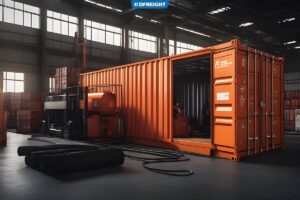Individuals and businesses benefit from customs brokerage services because customs brokers make it easier to move and deliver products across borders.
The general public is typically ignorant of the massive amounts of goods and raw materials that travel international borders every day and the complexities of clearing these goods through customs in most countries.
Regarding the transportation of goods entering or leaving different borders, each country has its own norms and regulations. Customs regulations and legislation governing the import and export of commodities often change across the world, sometimes daily.
A customs brokerage service is in charge of learning all of these laws and regulations and ensuring that they are obeyed to make exporting products as simple as possible for the person or organization. Customs brokers relieve their customers of the burden of dealing with customs officials and mastering shipping procedures, allowing them to focus on what they do best: operating and managing their own company.
Customs brokers act as interpreters, interacting with customs, agencies, and the government throughout the shipping process to ensure that all procedures are followed.
Table of Contents
What Does A Customs Broker Do?
The first step in collaborating with an agent in customs brokerage is signing a power of attorney, which authorizes the broker to act on your behalf in future transactions with the customs. If this is your first import, the broker can also assist you in becoming an Importer of Record with Customs (IOR).
The customs broker then conducts the following general steps when you need to bring or import a package into a country:
Choosing the Right HS Code
The customs broker you hire helps you pick the proper HS code for your goods. You’ll give a 10-digit Harmonized Tariff Schedule (HS) code to each item you import, which identifies the product and allows customs to determine what tariffs apply. Choosing an HS code is a difficult task. If you make a mistake, you may be subjected to an inspection, which could incur additional costs. A qualified agent in customs brokerage knows how to make the best decision possible.
Completing and Transmitting the ISF (Import Security Filing)
ISF files inform customs authorities at each port about the items arriving, where they are coming from, and when they will arrive. At least 24 hours before the shipment leaves the port of origin, the ISF must be filed. If you miss the deadline, you might be fined.
Obtaining an ISF Bond
Purchases an ISF bond from a surety firm to ensure that customs receives the ISF file, that the paperwork has the relevant details about the shipment, and that it arrives before the 24-hour deadline.
Obtaining A Customs Clearance Bond
This bond, obtained from a surety firm, ensures that the customs receive all required taxes and fees.
Transmitting the Customs Clearance Documentation
This is normally done approximately a week before the ship arrives at its final destination. Much of the same information as the ISF is included in the customs clearance, but in more detail, including the complete 10-digit ISF code and all commercial invoice data.
Arranging for the Necessary Payments
The typical customs clearance expenses should be taken into account. Your agent in customs brokerage can pay this money on your behalf and then include it in the invoice that it provides you, or it may conduct an Automated Clearing House (ACH) transaction to send the money straight from your bank account to customs.
Why Do You Need A Customs Broker?
After hiring a professional customs broker, you can receive services regarding customs paperwork. A good customs broker executes a customs entry in minutes rather than the hours or days that a novice importer may take. The broker sends the documents to Customs online, ensuring they arrive on time. A customs broker decreases the risk of mistakes that may delay your cargo and raises your costs since he knows the procedure well.
How to Select & Hire A Customs Broker
Look for a customs brokerage with a lot of experience and a good track record. You want a partner that pays attention to the details and completes tasks efficiently. A broker waiting until the last minute to file may miss deadlines, subjecting you to fines. If your broker fails to pay your duties on time, you may face problems with customs, the surety firm, or both.
Finding a reputable customs brokerage agent through word of mouth is an excellent start. A referral from your freight forwarder is also acceptable. You won’t need to look for a broker or worry about the day-to-day specifics of the import procedure if your forwarder has a good relationship with a trustworthy customs clearance agent. The forwarder and its trusted partner will manage the entire process.
The Final Word
A customs broker assists you in understanding import and export rules, obtaining relevant approvals, and submitting documentation and payments on your behalf. Their industry knowledge makes them significant assets for businesses that import and export goods.
To get help from professional customs agents, fill out the contact form on our website, and our team of experts will contact you asap.
What is a customs broker?
A customs broker is an individual or company licensed by the government to facilitate importing and exporting goods into and out of a country.
What do customs brokers do?
Customs brokers ensure that shipments comply with all applicable laws and regulations. They also provide guidance and support to their clients to help them navigate the complex customs process.
What are the skills of a customs broker?
The skills of a customs broker include excellent communication, organizational, and problem-solving abilities.














